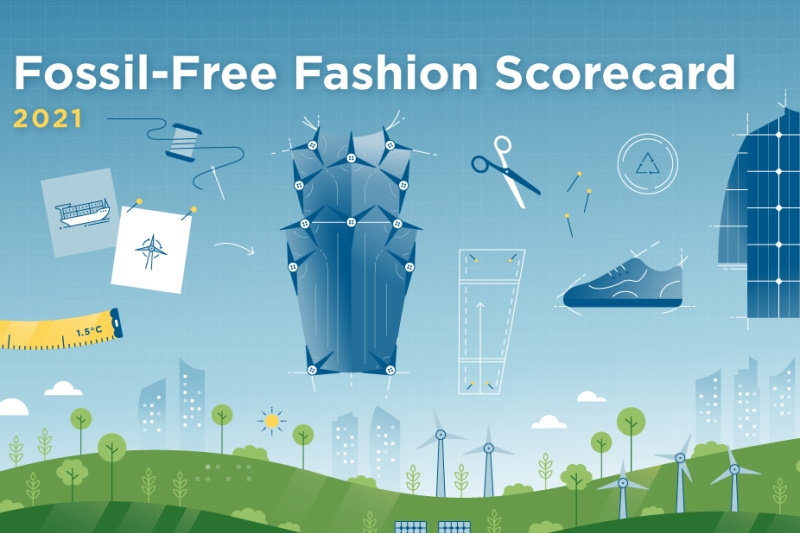

Standearth
Environmental campaign group Stand.Earth has released its first ‘Fossil Free Fashion Scorecard’ report in the wake of a global pandemic and a devastating IPCC report that reinforced a growing consumer demand for corporations to act on the climate crisis and protect public health shows how companies are failing in their efforts to combat climate change.
The scorecard indicates that fashion firms are not doing enough to shift from climate pledges to actions at the scale that is critically needed in a multi-trillion dollar sector whose greenhouse gas emissions are anticipated to dramatically grow in the next decades.
Muhannad Malas, Senior Climate Campaigner at Stand.earth, said that companies’ time to shift from pledges to actions and take the required steps to substantially decrease their greenhouse gas emissions in the next decade is running out. If fashion brands genuinely care about addressing the climate problem, they must phase out coal power from their supply chains and abandon fossil fuel fabrics like polyester.
The scorecard evaluates 47 businesses on their efforts to eliminate fossil fuels from their production, materials, and transportation operations. The results reveal that athletic companies are on top, with Mammut (B-) coming out on top, followed by Nike (C+), and a tie between Asics (C), PUMA (C), Levi’s (C), and VF Corp (C) (C). In contrast, prominent yoga company Lululemon (D-) received a failing grade for taking no substantial steps to eliminate coal from their production process and replace it with renewable energy.
Columbia (D-), Gap (Athleta) (D), New Balance (D), and Under Armour (D) are among the other sportswear brands that earned low marks (F). Zara (D), the world’s largest fast-fashion company, was scored badly for its growing reliance on low-cost, fossil-fuel materials like polyester and for making little progress in decarbonizing its manufacturing.
Climate pledges and transparency; renewable and energy-efficient manufacturing; renewable energy advocacy; low-carbon materials; and greener shipping are all areas where the scorecard evaluates global fashion firms.
None of the top ten companies received a grade higher than a B-. Mammut, Asics, Nike, PUMA, VF Corp, Adidas, Arc’teryx, and Patagonia are the top eight sportswear brands, with Levi’s and H&M rounding out the top ten.
Yiqi Yang has developed a groundbreaking fiber-to-fiber recycling technology that removes dyes, separates blended fibers, and recovers high-quality materials.
DS Smith has unveiled a plastic-free packaging solution for BMW's car wheel carriers, replacing traditional materials with recyclable corrugated cardboard.
A doctoral thesis from the University of Borås, Sweden, presents a novel method for healing large bone defects using bioplastic…
Ambercycle and Highsun Holding Group have signed a strategic cooperation agreement aimed at advancing textile-to-textile (T2T) closed-loop recycling systems.
PAIGE has partnered with the Cotton Lives On programme to launch a recycling campaign, encouraging customers to bring in old…
Toray Industries Inc. from Japan, has partnered with Head Sports GmbH to create the Boom Raw tennis racquet, a product…